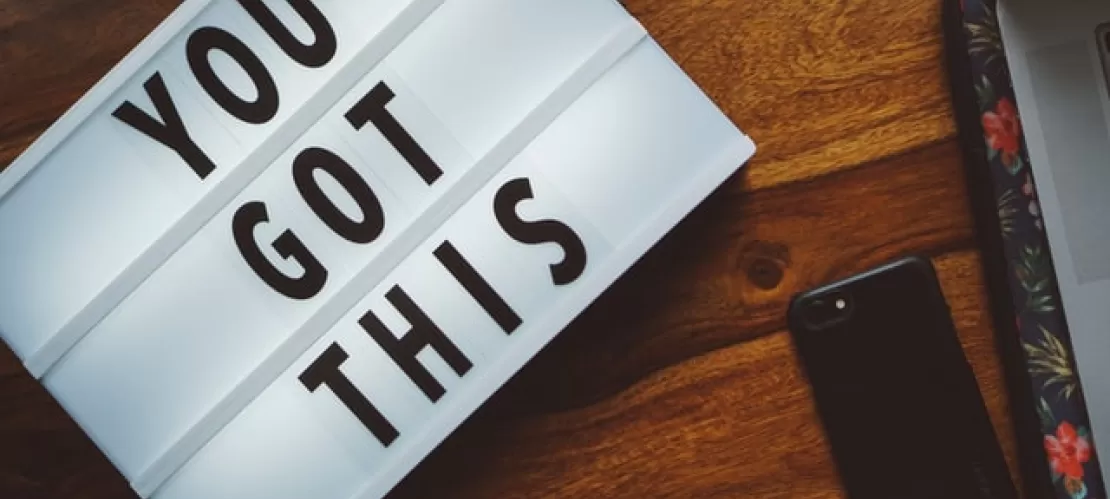
When the COVID-19 pandemic started I was working a finance job I had been doing for almost two years. From the first days of the lockdown, I started working from home. In addition, after the working day was over, everything was closed so I was still stuck at home doing nothing other than analysing how my life was going.
There was a positive side to all of this - having time for additional online courses on subjects I wanted to learn more about, that I was always postponing before. I am not sure what was the main factor from all of the above-mentioned (or maybe it was all of them) that made me realise I want to explore a new career field. Whatever it was, I decided to be brave and started pursuing a Master’s degree in Digital Marketing, despite my Bachelor and all my professional experience being in the field of Finance and Accounting.
Of course, that was only the beginning and it was the fun part - studying something new, going on Erasmus again, writing a Master’s thesis on an interesting topic you chose. The not-so-fun part came once I graduated and started applying for a job in the unexplored territory of Marketing during the pandemic. I did not expect it to be an easy task, but I was definitely not imagining it to be as hard as it really was. Looking back now, I wish somebody would have given me advice and (mentally) prepared me better. That is why I decided to write down a few things you should consider if you ever find yourself in the same situation.

1. Make a new CV
Many people have a CV which they only update by adding the new position since the last time they applied for a job. I would not recommend that if you are opting for a career change because you need to adjust your CV accordingly. This means a few things.
Firstly, do not erase everything you have written. Professional experience is always important - it shows that at least you have work ethics and teamwork skills. However, when mentioning previous positions in other fields, try to find and highlight the most relevant parts to your new area. For example, something useful in both finance and digital marketing is budget management.
Secondly, demonstrate any relevant experience even if it is not professional. Did you have some projects during your studies? Did you spend some time doing extracurricular activities? Did you do online courses? Great! Put them on your CV and make them visible.
2. Accept that you are inexperienced
When you are switching careers, you do not have professional experience in the new area. And the sooner you accept that, the better. You will most probably have to start as an intern or a junior. That might be a bit uncomfortable for someone who was previously working at a higher position, but this is a new sector. Do not set your expectations too high. You will have to build a new career path for yourself, starting again from the lowest levels and climbing up step by step. However, don’t focus on the lower level - this is exciting! You are like a white page and you can choose exactly what you want to write on it and what you want to do, going beyond the limits of your prior experience.

3. Be patient
Finding a new job takes time. If you do have prior experience in the field, it might not be that much. However, when we talk about switching areas, you will not have that much to offer, except your motivation and possibly some extracurricular experience. You might have a relevant education (just like I had) and it means something, but it is not enough in today’s world where the gap between the education system and the labour market is too big. The employers are looking for something more than education. They will have many questions and will ask you to give examples during the interview. Be well-prepared.
In addition, especially, if you are switching to a more creative area, you will be asked to do different assignments between the interviews that test your creativity. This adds one more step to the process and makes it longer in general.
4. Have some savings (if possible)
That is related to being patient and the fact that it takes time to find a job. On the one hand, you need to have savings for that period and be able to take your time for applying and assessing the different opportunities. On the other hand, it is also related to the fact that you will start from a lower level. If you haven’t thought about it - this also means a lower starting salary or, unfortunately, unpaid internships.
When calculating how much savings you need, do consider the period between starting your first job in the field and reaching the salary you are used to. Most probably you will have to give up something from your old life or put some limitations on your budget for a while, but accept that as an investment in your future and your happiness at work.
5. Choose the right timing
Do you remember that episode from How I Met Your Mother when Robin tells Ted: “If you have chemistry, you only need one other thing … Timing.” (Any HIMYM fans out there?) I couldn't agree more with her on that sentence, and not only in terms of love, but also career-wise. It is very different if you change your career when you are 21 and when you are 31. It is very different if the other aspects of your life are stable or if there is something else you are concerned about. It is important how you see yourself in 5-10 years, because changing your career is going to be a decision with long-term effects. Some of the pros and cons will be seen right away, but for others you will have to wait. Better late than never but make sure NOW is the right time for you and shine!

Sometimes you have to jump. If you do not feel good at the place you are right now, change it. If your career is the reason for this - change it. It is never too late to try something new.
However, everything comes at a cost and the list of pros and cons to consider is usually very long. Even if you find an internship or a full-time position in the new field, there is a chance for it to be different from what you have expected. In such a case, do not be ashamed to switch back. Nothing is forever and nothing is known until you live it. The best we can do is to try and drive for personal and career developments in the area you care about and makes you happy.
